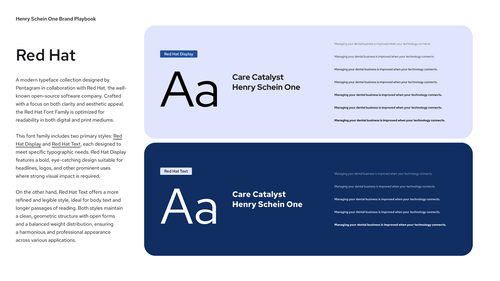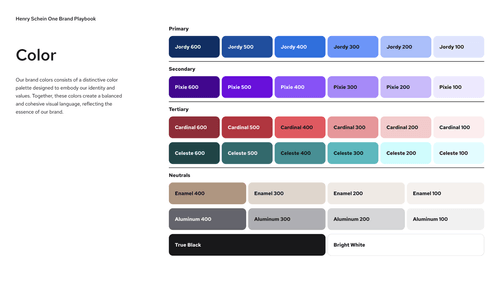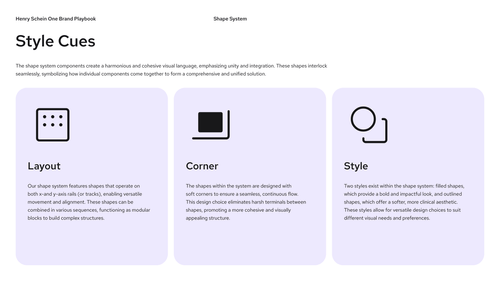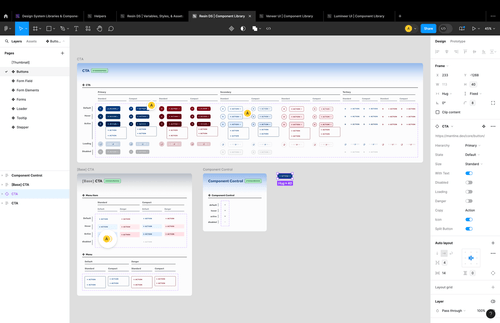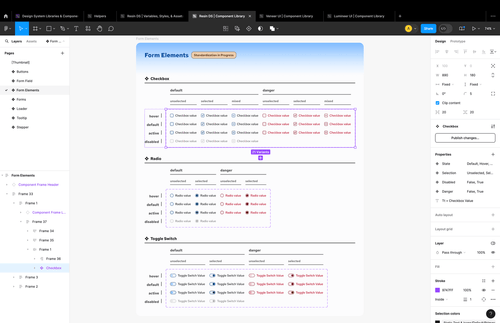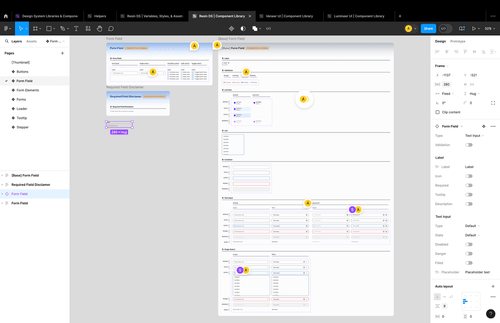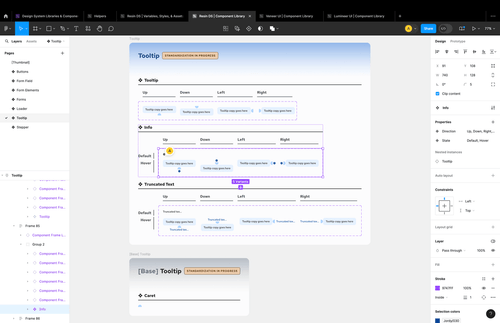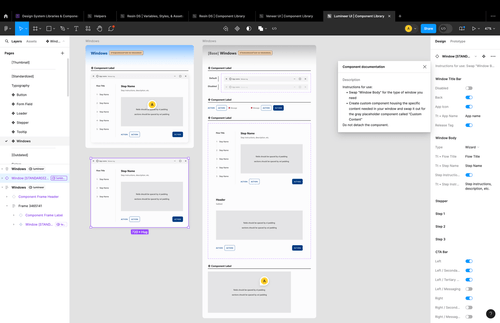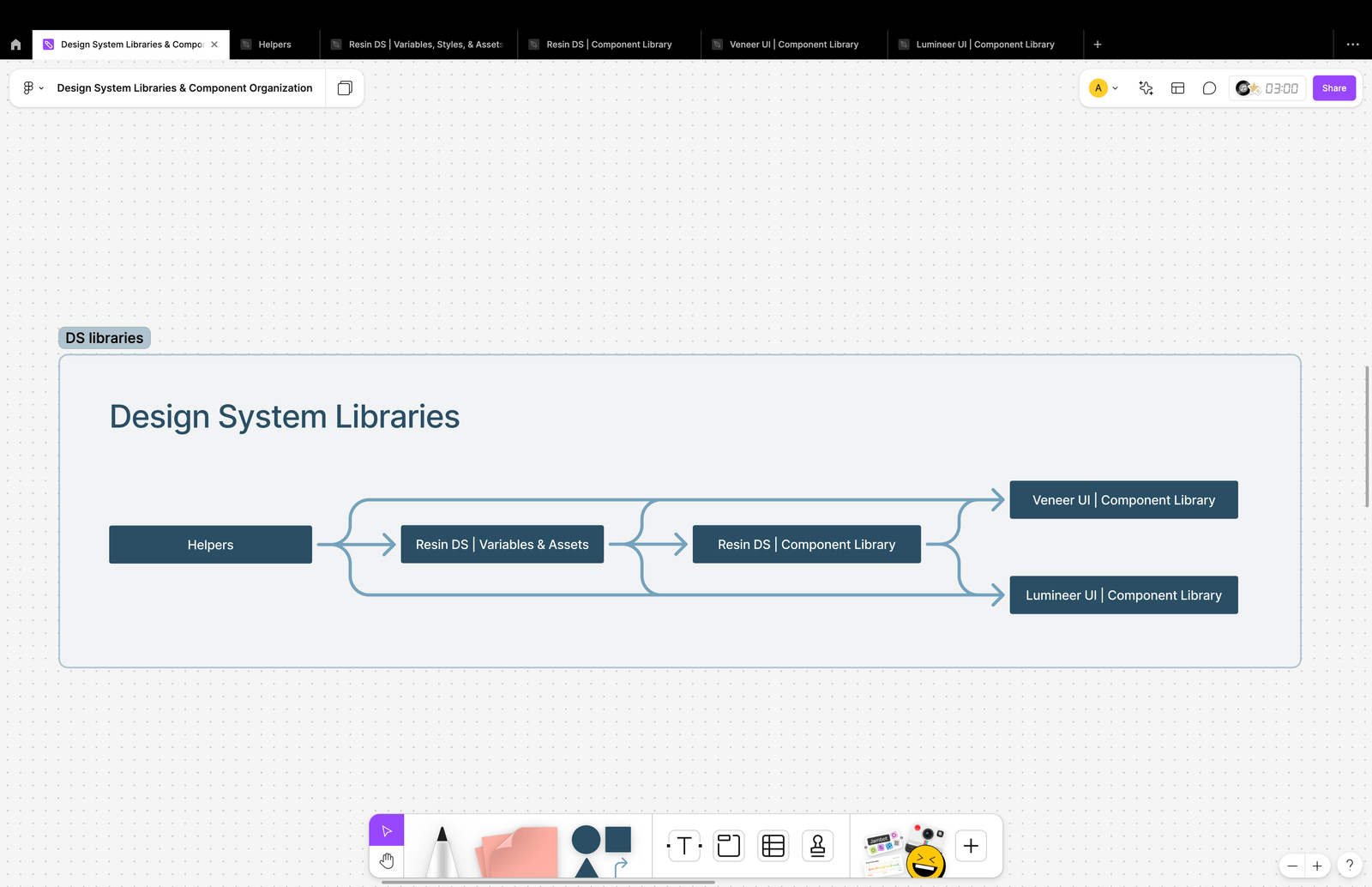Company
Henry Schein One
One Design System to Rule Them All
Role
Senior Director of User Experience & Research
Overview
Henry Schein One is a dental tech company with products that have dominated the industry for over 30 years. When I joined as the Senior Director of User Experience, I spearheaded the design system initiative, aimed at creating a unified visual language and scalable framework across our digital products.
Metrics
25
20
90
Challenges
The design and development teams faced significant challenges due to inconsistencies in the UI components and codebase across multiple products. These inconsistencies led to duplicated efforts, increased maintenance costs, and a fragmented user experience. It became clear that without a unified approach, scaling the platform would be impossible.
Strategy
I introduced a robust design system that standardized UI components, streamlined workflows, and enabled seamless collaboration between design and engineering.
The Plan
The complexity of the product landscape required a unique approach to the design system. Henry Schein One’s platform supported two types of products: on-premises solutions built for Windows and cloud-hosted offerings. To accommodate both, I led the creation of a unified design system, named Resin, with two specialized interfaces—Veneer and Lumineer. Resin established consistent principles, content, and aesthetics across products, while Veneer and Lumineer translated these fundamentals into patterns and components tailored to their respective environments.
- Phase 1: lay the foundations of the Resin Design System.
- Phase 2: audit & standardize the core patterns & components for the two interfaces.
- Phase 3: scale the design system by adding custom patterns & components specific to the dental industry.
Phase 1: Laying the Foundations
With the plan in place, we established clear design system principles and crafted a cohesive vision for the new interfaces’ look and feel.
Values & Principles
Before moving forward, our team defined core values and principles by asking two key questions:
How do we want our users to feel when interacting with our products?
What guiding touchpoints can anchor our design decisions consistently?
Through extensive brainstorming, we aligned on the product values and foundational design system principles that would drive our vision.
Look & Feel
Considering the purpose of our products—supporting dental practices and patient care coordination—our goal was to create a visual identity that felt refreshing yet understated. Conveniently, Henry Schein One’s branding team was finalizing a brand refresh at the same time, allowing us to collaborate closely and swiftly align on fonts, colors, and visual elements.
Phase 2: Standardizing Library Components
Within about two months, we developed most of the essential standardized form elements, along with several key molecules and organisms, for the pilot project of the design system implementation.
Before & After Implementing this Design System
The images below showcase a screen before the implementation of the design system and the same screen redesigned using the design system.
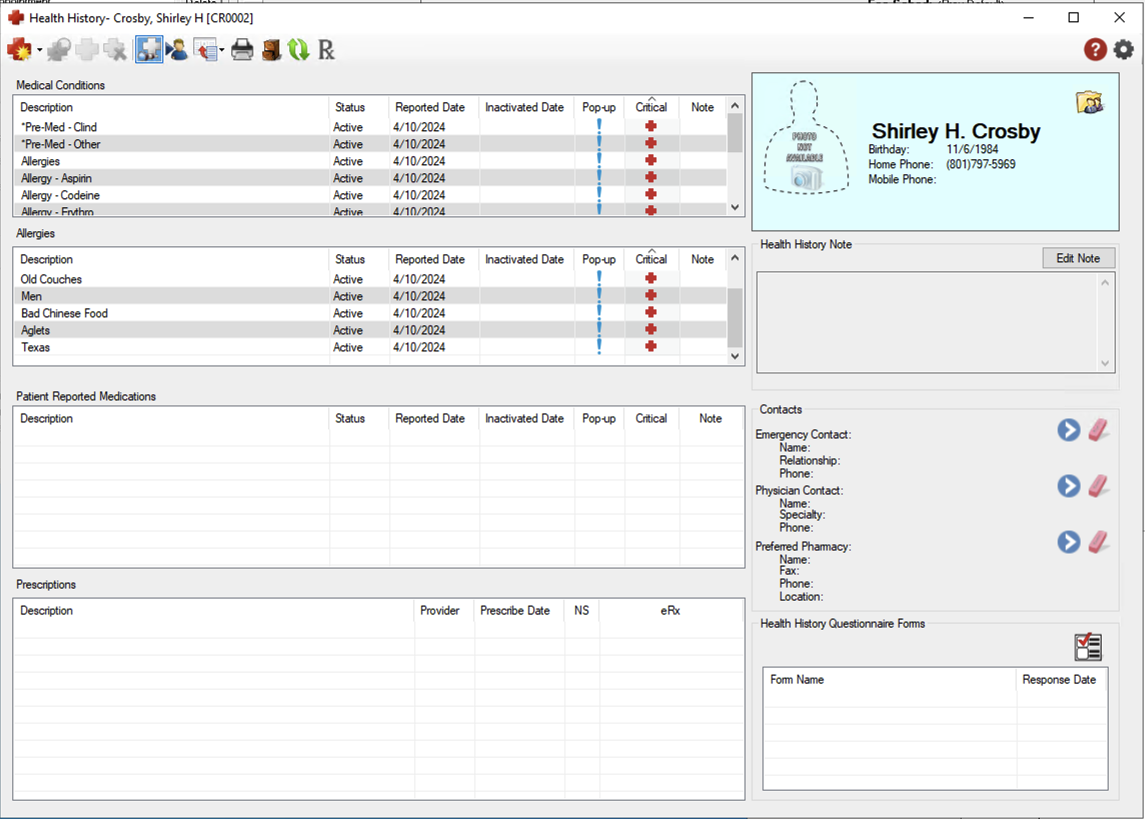
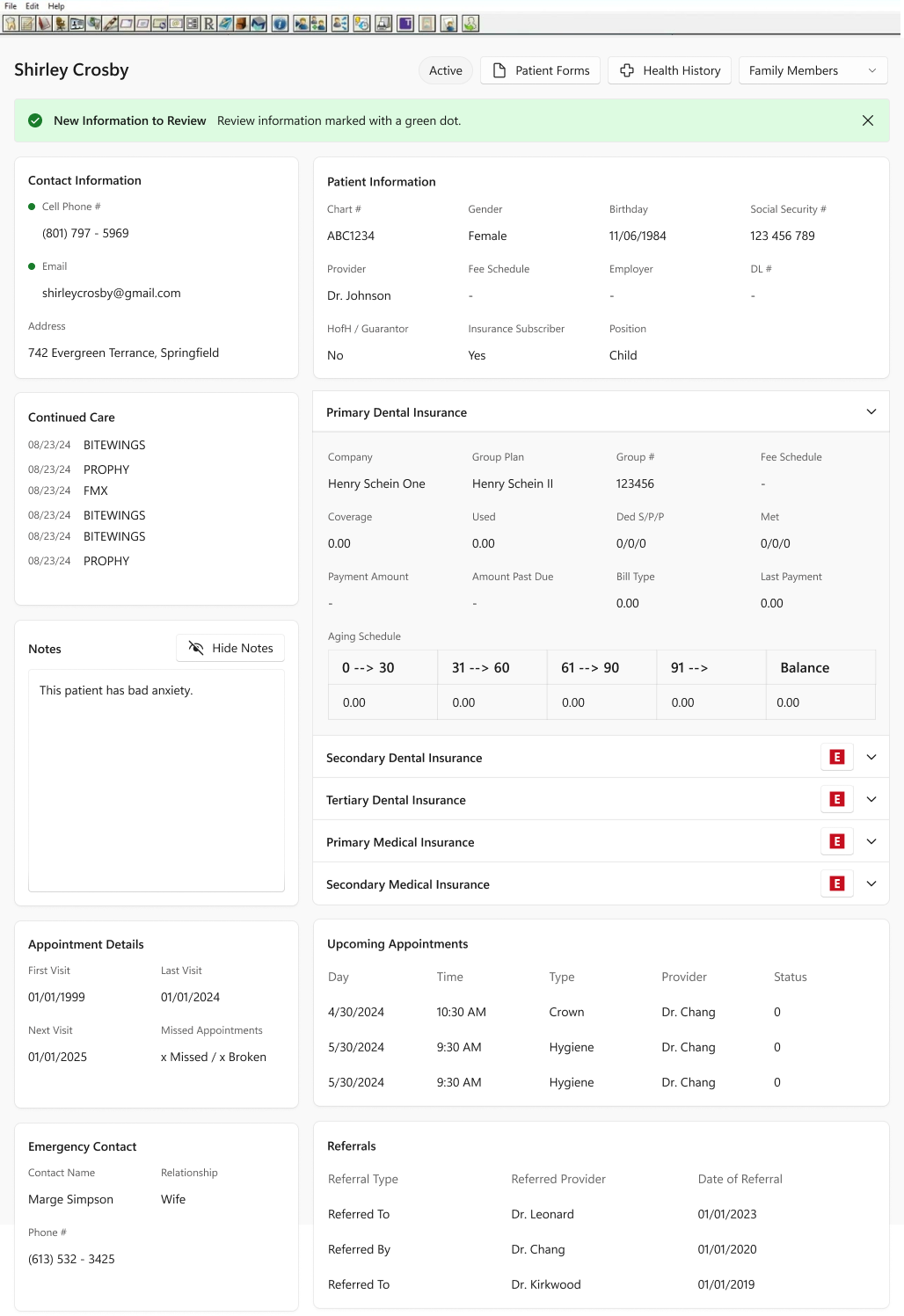
Outcomes
These efforts yielded significant results, both in terms of user experience and business outcomes:
- Spearheaded transformative changes in product strategy, resulting in a 25% increase in customer satisfaction scores and a 15% reduction in support tickets.
- Established a UX research practice, utilizing research to inform data-driven design and leading to a 20% improvement in user retention by increasing the effectiveness of product design decisions.
- Directed the creation of three distinct design systems, reducing time-to-market by 90% for one product and 30% across the entire portfolio, significantly reducing costs and improving profitability.

